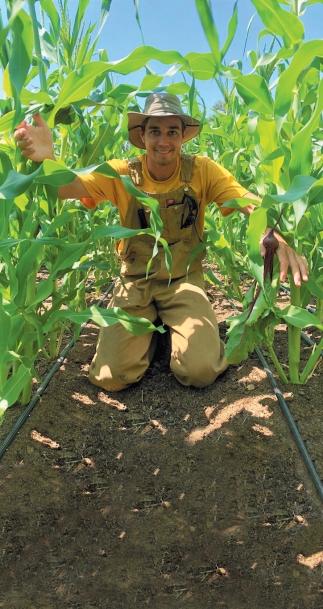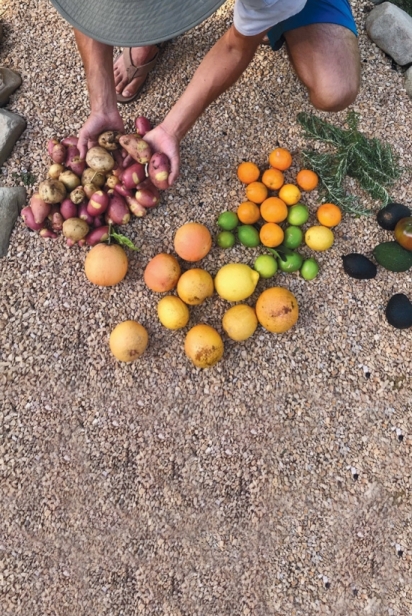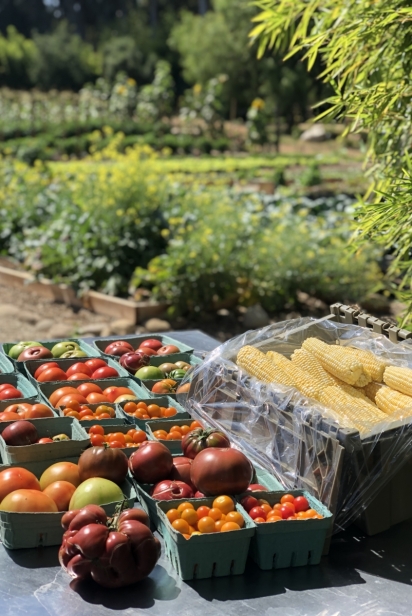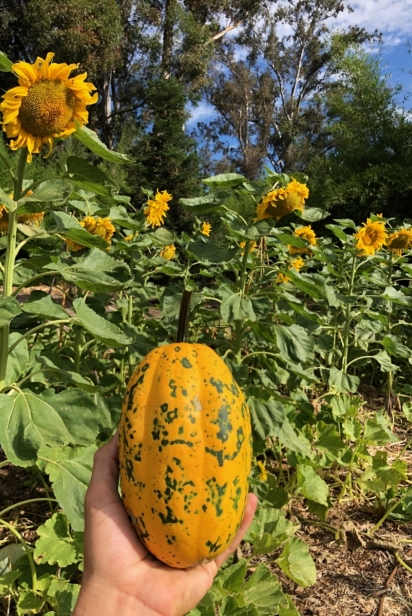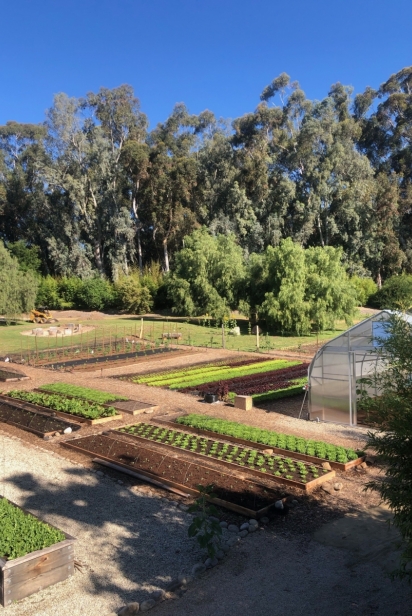Regenerative is the Key at Ojai Roots
What does the earth smell like where your food grows?
If you’re a foodie, like most folks who read this publication, then you already know the value of using fresh, quality produce in recipes to enhance the true depth of flavors. As consumers, we have the power to ask questions about the products we purchase from local farmers and vendors. What are you growing? When was this harvested? Are chemicals or pesticides used on the farm? The connection between farmer and foodie is as important as the relationship between farmer and soil.
With that connection in mind, I took some time to speak with Evan Graham Arango, local farmer, environmental lawyer and owner of Ojai Roots, a micro- scale farm operated on almost an acre of land using regenerative agriculture techniques.
“Overall, the resilience of the farm starts with soil,” says Evan. “Healthy soil is the single most important factor, the backbone of my farm, to defend against weeds, pest disease and drought.”
Perhaps in part due to the farm size, and in part for efficiency, Evan uses a no-till method. This means that no machines are used at Ojai Roots. Instead, they use traditional farming tools and manual labor to minimize soil disturbance and to be gentle with the soil-food-web. Other regenerative farming techniques implemented on the farm are: honoring seasonal crop rotations; making wood chips from tree pruning; and recycling nutrients back into the soil via composting and mulching.
While Evan worked to complete his law degree at UCLA with a specialization in environmental law (graduating May 2020), he would return home to Ojai regularly to decompress from the stresses of studying and escape the hectic Los Angeles scene. To get out of the library and into nature, he built a garden box at his parents’ house. Later, while grieving a family loss, Evan found the garden to be healing.
As a pastime he started to grow food, then LOTS of food.
As the COVID-19 pandemic swept around the globe, there was a big crack in the mainstream food production system. Unconscionable amounts of food from restaurants, grocery stores and industrial agriculture crops were all being thrown away. During this time, residents swarmed the markets with lines around the block, only to enter the store to find bare shelves. In response to the need, Evan started to sell the extra veggies he grew to residents and local vendors. One day, after sending the invoice for his first box of lettuce, he says, “I thought to myself, ‘This isn’t what gardeners do ... it’s what farmers do!’” And so, Ojai Roots was born.
Now looking ahead, “Planning the future of farming is challenging with the changing climate and especially the water crisis. Here’s the reality of farming: It’s very, very tough and not many farms are profitable.” Evan says, “Most commercial farms make profit because they scale up, mechanize processes and exploit labor. I believe in a different model of farming. One that’s healthier for the community, for the workers, for the planet and for our plants. But I do like looking at the best ideas from the factory farms and the best concepts from the big agribusiness and trying to implement as much of those efficiencies as we can in a more eco-friendly way. And that’s what I’m trying to build here.”
Although Evan’s environmental law degree does not influence the way he chooses to farm, it is useful when signing business contracts, and understanding the language of land use agreements. While “production is the most exciting and the most time-consuming part of the process, at the end of the day, a farm is a business, and production is only a small aspect that runs the business.” Off the farm, Evan demonstrates his passion for the environment even further, advocating for law and policy changes that support healthy soils, regenerative agriculture and smallscale farming.
Visit Ojai Roots on social media @OjaiRoots and in person at the Ojai Community Farmers’ Market.
WHY FARM REGENERATIVELY?
The United States has seen a significant decline of farmers since the 1950s. As most industrialized farmers began specializing in particular crops during the last half of the 20th century, many farmers sold their land to neighboring farmlands in order to consolidate property and increase crop production, which, in turn, lowered the cost of crops for the consumer.
Nowadays, while the number of organic farms has sharply increased over the last two or three years, even in Ventura County most farm production is done via large-scale monocrops that rely heavily on chemicals to maintain high production and yields. According to environmental scientists working with the Natural Resources Defense Council, industrial farming depletes soil and is not sustainable in the long term.
“Regenerative farming” is defined as any form of agriculture that uses practices to increase soil fertility, biodiversity, water quality and retention, and soil carbon sequestration.
Regenerative farming aims to strengthen ecosystems in the soil-food web, while producing sufficient amounts of high-quality nutritional food. Evan believes “the healthier soil you create, the less inputs you need” to achieve improved results in pest and disease management, and higher crop yields without depending on chemicals.


